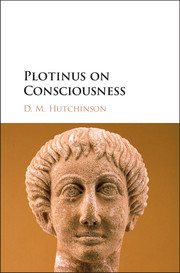Description
Plotinus on Consciousness
Author: Hutchinson D. M.
Examines the first theory of consciousness in Western philosophy, dispelling the dogma that consciousness studies begins with Descartes.
Language: English
Subject for Plotinus on Consciousness:
Approximative price 107.80 €
In Print (Delivery period: 14 days).
Add to cart
Publication date: 04-2018
218 p. · 15.8x23.5 cm · Hardback
218 p. · 15.8x23.5 cm · Hardback
Description
/li>Contents
/li>Biography
/li>
Plotinus is the first Greek philosopher to hold a systematic theory of consciousness. The key feature of his theory is that it involves multiple layers of experience: different layers of consciousness occur in different levels of self. This layering of higher modes of consciousness on lower ones provides human beings with a rich experiential world, and enables human beings to draw on their own experience to investigate their true self and the nature of reality. This involves a robust notion of subjectivity. However, it is a notion of subjectivity that is unique to Plotinus, and remarkably different from the Post-Cartesian tradition. Behind the plurality of terms Plotinus uses to express consciousness, and behind the plurality of entities to which Plotinus attributes consciousness (such as the divine souls and the hypostases), lies a theory of human consciousness. It is a Platonist theory shaped by engagement with rival schools of ancient thought.
Introduction; 1. Self; 2. Consciousness terms; 3. First layer: the soul-trace; 4. Second layer: the lower soul; 5. Third layer: the higher soul; 6. Self-determination; 7. Conclusion.
D. M. Hutchinson is an Associate Professor in the Philosophy Department of St Olaf College, Minnesota.
© 2024 LAVOISIER S.A.S.
These books may interest you

Plotinus on the Soul 106.56 €

Plotinus on the Soul 32.87 €

Plotinus 154.17 €

